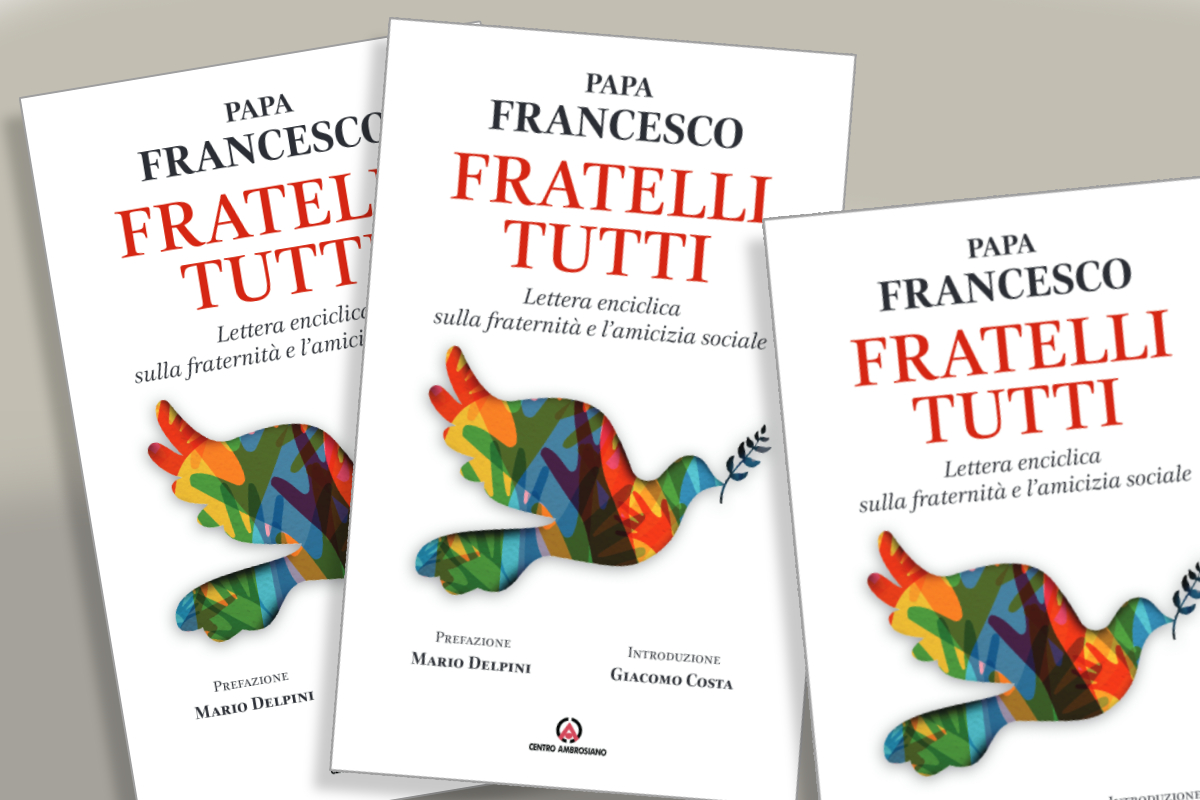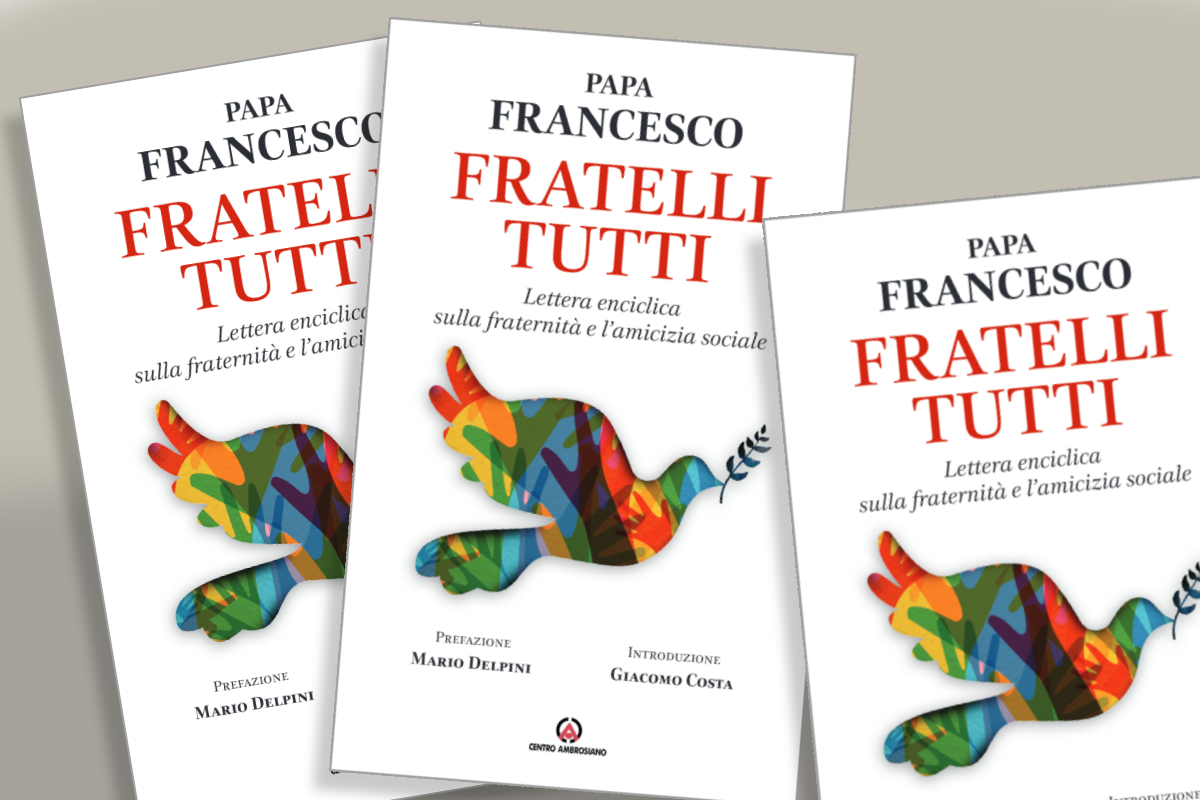
.png) Varghese Theckenath
Varghese Theckenath

The encyclical “Fratelli Tutti” in the context of the pandemic is challenging, inspiring and forceful. It opens up immense possibilities of charting new ways of being the Church and finding new partners to create a world that nourishes our common Sisterhood, our common brotherhood.
Challenges and Opportunities for the Church in India
It is true that the 287 paragraphs long Encyclical, Fratelli Tutti, in eight chapters have been in the making even before the pandemic began. But its call to unite in solidarity across regions, religions, social identities and races to overcome the ravages of the pestilence gives it a timely and universal appeal.
In the process, Pope Francis has placed before the Church possibilities of relooking at and altering long-held beliefs to build a new order of relationships. Here we shall consider some instances in history of how the Christian community responded to pandemics and in the process made fraternity beyond boundaries possible. We shall conclude with some challenges Pope Francis poses for the Church in India to build a fraternal world.
We live in times of a plague. This is not a strange phenomenon in human history. In fact, as Jared Diamond has well elaborated, it is a combination of guns, germs and steel, that has made the world what it is – a world divided between haves and have nots. Pandemics are times of global churning resulting in new mutations and permutations. In the process, radically new relationships can emerge. What the Encyclical, Fratelli Tutti, offers is a compass to find directions.
Pandemics are times of fear, insecurity, despair, loneliness and death. These are also moments of solidarity, self-abandonment, creativity and human endeavour. It is a time for counter-cultural and prophetic actions. Let us consider two contrasting situations of pestilence and responses from history to understand what Pope Francis is calling for today.
The first is the Plague of Athens in 430 BC that devastated the city state, taking the lives of 100,000 people. Thucydides the historian recorded the response of people as one of despair and lawlessness. People died hopeless and lonely, because no one cared. The dead were heaped on top of each other and left to rot. There was a complete breakdown of society. In other words, the consequences of the plague were fragmentation of individuals and society from which Athens took a long time to recover.
In contrast is the Antonine Plague (165 - 180 AD). It decimated 10 per cent population of the Roman empire, devastated its armies, and caused the death of emperor Lucious Verus himself. But there was something radically different about the response to it. There was a small group of people called Christians who were fearless in the face of death. They went into the streets giving honourable burials to the dead, care for the sick, and food for the hungry. Even as they were targeted and lynched as the cause of the plague because they didn’t worship the Roman gods, Christians went about serving and caring. They very specially chose to care for their enemies and persecutors. Their fearlessness and sense of service astounded the empire and drew converts in hordes.
Care for the sick, feeding the hungry and burial of the dead came to be written in the DNA of the Christians during pandemics and plagues. The courageous leadership provided by Cyprian of Carthage in the 3rd century is legendry. We are familiar with the story of the 2000 and odd nuns who came out of their convents and monasteries to serve people afflicted with the Spanish Flu in the State of Philadelphia in the early part of the last century.
I was a close witness and active participant in a work of solidarity as the Covid -19 pandemic raged in Hyderabad. People of every religion or no religion, came together to feed the hungry, to provide transportation to migrants, to give healthcare and to bury the dead. What was striking about such human solidarity and heroic action on the ground was the often-peripheral role of Christians in the effort.
Given the past experience of people in times of calamities, many asked, ‘where are the Christians?’ This was particularly heard from the medical fraternity who expected the community to give them the lead. But as per reports, out of the over 3500 Catholic healthcare institutions in the country, only 72 are actively engaged in taking care of Covid patients.
The pre-dominant response of a majority in the Church, especially of the 125,000 religious women and men, and the almost twenty thousand and more priests to the pandemic was withdrawal into the comfort their religious houses and presbyteries. At the same time there was a disproportionate multiplication of online masses, religious events, novenas and recorded sermons.
In the process the Community in India missed the opportunity for frontline leadership and collective action that has always been the Christian response to pandemics. There were some who left the security of their residences to serve the hundreds of thousands of migrants on the streets. But they were far too few.
Going beyond the solidarity necessary to overcome the pandemic, Pope Francis calls for new responses that can bring about fundamental changes in relationships among people and countries. A few that are relevant to the Indian Church in the current socio- economic and political context needs to be highlighted.
The first is that nations and governments are becoming increasingly authoritarian, taking away the rights of people to be heard, to dissent and to organise. This is a daily experience of our people in India caught in the web of majoritarianism. The Church has to develop the spine and the muscles to stand up to speak truth to those in power, even if it means that the institutional power of the Church will be decimated. Fr. Stan Swamy who is thrown into the jail today, is but an example of such necessary courage.
The second is the undiluted stand of Pope Francis on death penalty. He says, “The death penalty is inadmissible and Catholics should work to abolish it”. The Church in India has its task cut out to take a collective stand alongside others to say no to capital punishment and crimes perpetrated by the State.
The third issue is regarding sharing of power with women. The title of the Encyclical excludes women. The document takes the names of Francis of Assisi, Martin Luther King, Mahatma Gandhi, Desmond Tutu and Charles du Fucauld as sources of wisdom. There is no woman found worthy to be among them. It admits with regard to women that “We say one thing with words, but our decisions and reality tell another story”. Can the frank admission of Pope Francis be the beginning of a new era for women in the Church?
Finally, is a definitive stand by Pope Francis on war. Reversing the Church’s centuries old ‘Just War’ rationale, he clarifies that the continued existence and flourishing of humanity depends on a new war cry: “Never again war!”. This challenges the Church in India to counter prophetically the military-media-academic- corporate nexus that is devouring the much-needed resources to meet basic needs of people.
The encyclical “Fratelli Tutti” in the context of the pandemic is challenging, inspiring and forceful. It opens up immense possibilities of charting new ways of being the Church and finding new partners to create a world that nourishes our common Sisterhood, our common brotherhood.